Papers by Dr.Abdul-Karim Ziani
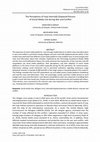
Jurnal Komunikasi: Malaysian Journal of Communication, 2023
The expansion of social media platforms' uses through mobile devices to obtain news and informati... more The expansion of social media platforms' uses through mobile devices to obtain news and information in wars and conflicts is pertinent among refugees and even internally displaced persons (IDPs). A few studies have examined how different social media platforms have enabled users to send and get their news and information about their situation. Explained by the Technology Acceptance Model (TAM) and the Uses and Gratifications theory, this study examines the impressions of how and why Iraqi IDP respondents use social media platforms, their perceptions, and their adoption of social media platforms in the times of war and conflict especially during the ISIS operations, for communication, information seeking, social interaction and its perceived usefulness regarding continuous usage behavioral intention. A sample of 288 Iraqi IDPs in four large camps in Iraq participated in this research. The findings revealed that most IDP respondents use and adopt various media platforms (traditional and new) for news and information. They, not surprisingly, mostly used their mobile devices to send and get such news and information. Such devices and platforms were very important in enabling them to get in touch with their loved ones, friends and relatives and communicate and socialize with others. These devices, once connected to the Internet, were also important as a tool in seeking information e.g., knowing what assistance is being provided.
Lecture notes in networks and systems, 2023
This study investigates how virtual reality of Goggles (VRG) in improving the students’ learning ... more This study investigates how virtual reality of Goggles (VRG) in improving the students’ learning management system (LMS) acceptance through applying a cross-sectional design and used SEM and machine learning techniques to dig deep insights. Thus, it is found that VR Goggles significantly impact expectation confirmation and knowledge acquisition. Both expectation confirmation and knowledge acquisition also have a significant impact on students’ motivations that is further leading to LMS acceptance. Behavioral intention was found partially mediated the students’ motivation to accept LMS. The study concluded that incorporating technology in education is important to break barriers hampering the students’ educational journey in the conventional learning system.
2022 International Arab Conference on Information Technology (ACIT)
Educational Media International

Lecture notes in networks and systems, Jul 13, 2022
Abstract. Still, little is known about the role and contribution of media ads in healthcare commu... more Abstract. Still, little is known about the role and contribution of media ads in healthcare communication and awareness during the Covid-19 outbreak. This study examines the role of public service ads in spreading healthcare awareness in Pakistan. Based on a quantitative approach through a sample of n = 200 participants from the Sahiwal city, the study proposed a self-designed model that used the Structural Equation Modelling to affirm the proposed relationship between the variables. The study found that media ads were not only disseminating the Covid19 awareness but also changing the public attitudes toward taking precautionary measures to halt the transmission of the disease. Hence, the findings indicated that public service advertisements have substantial, positive impacts on people’s perceptions and actions regarding the current pandemic. The results discussed media context and healthcare awareness to highlight further the role of such media in bringing positive behavioral changes.
Elementary Education Online, 2021

Convergence: The International Journal of Research into New Media Technologies, 2020
This article examines perceptions of social media use (e.g. the WhatsApp application), in particu... more This article examines perceptions of social media use (e.g. the WhatsApp application), in particular looking at how Bahraini women use such technology and how mobile communication is used by such a segment of the population. Mobile devices are very accessible to Bahraini women and this needs even further study to learn ways of using applications for information and other things. This analysis is based on an online survey, conducted among 1137 Bahraini women, using a nonrepresentative sample (snowball). Such data were analyzed using a deep learning approach which utilizes, in particular, the Fuzzy Proximity Knowledge Mining technique to examine the provided answers. The study found that WhatsApp has enabled Bahraini women to communicate and share information with others. They spent 2–3 h daily sending and enjoying comics and entertainment clips and important and rare news stories. Social interaction, communication, and escapism featured strongly as the most popular reasons for using ...
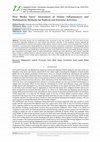
Terrorism attacks and its mobilisation have increased in the new media era. The later have become... more Terrorism attacks and its mobilisation have increased in the new media era. The later have become particularly important platforms for such radical and extreme activities. It has somehow become difficult for governmental bodies to control such content (video, photos, voice) in fact extremists / terrorist groups have "heavily" depended / used these New media platforms to spread extremism, incitement, recruitment, and propaganda. Based on a survey method (344 respondents), the study aimed at examining Saudi new media users' awareness and reaction to online inflammatory and mobilisation methods to better understand the power of new media. Findings revealed that respondents were highly aware of online inflammatory content, and were affected by such content, especially those related to conflicts between different Islamic sects' (e.g., Sunni/Shiite) followers. The complex relationship makes it difficult to draw simple policy implications, but it does offer insight into the role of new media play in terrorist activities.
2020 Sixth International Conference on e-Learning (econf), 2020
You Tube has become a vital platform, amongst other social-media sites, especially in e-learning ... more You Tube has become a vital platform, amongst other social-media sites, especially in e-learning / self-learning and in the unforeseen time of COVID-19. This study explores the influence of YouTube videos on users' behavioral intention regarding e-learning acceptance and their perceptions through targeting online university students (n=180) in Jordan, using the PLS-SEM procedure through SmartPLS software. The findings indicated that users' behavioral intention to adopt new e-learning was positively influenced by performance expectancy, perceived usefulness and ease-of-use. The findings were presented and discussed in relation to the Technology Acceptance Model (TAM) and UTATU frameworks.
Social media has integrated into traditional TV that has improved the learning, entertainment and... more Social media has integrated into traditional TV that has improved the learning, entertainment and communication process. Social TV is a new learning and connectivity aspect using interactive media platforms. This study highlights the impact of STV on students' AP in Jordan using a quantitative approach and a selected sample (n=516) of university students. The findings revealed a robust and significant relationship between STV and students' AP. STV has significantly improved their interaction and learning experiences. They were capable of learning new things from watching STV and shared their experiences with others through online platforms. The study proposed a research model and assessed it using the PLS-SEM technique.

Media Watch, 2019
his study investigates the use of interactive media (WhatsApp) by Bahraini women to understand th... more his study investigates the use of interactive media (WhatsApp) by Bahraini women to understand their decisions on how, why and when they use it. It supports the use of mobile technology applications to expand efficient communication and information among Arab women. Mobile technologies are accessible to Arab women. A sample of 1,137 responses was collected, using a snowball sampling approach. Based on TAM literature, the study found that interactive media (e.g., WhatsApp) has enabled Bahraini women to communicate and share information with others. WhatsApp was used daily (2-3 hours) and also for sending comics and entertainment clips and important and rare news stories. Social interaction, communication and escapism were found to be the most popular reasons for using WhatsApp. Overall, WhatsApp served as a platform used by Bahraini women to participate in social and communication activities.
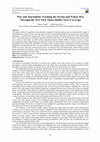
New Media and Mass Communication , 2019
This study, based on a quantitative and qualitative approach of content analysis, aims to underst... more This study, based on a quantitative and qualitative approach of content analysis, aims to understand the image of Arab-Muslims in times of crises and wars and how they are presented through the American press. In particular, the study is concerned with analyzing the news coverage of current Arab issues by the New York Times Online (NYT). The study answers a number of questions about how the New York Times Online produced stories and news related to the Syrian war (SW) and the Operation Decisive Storm (ODS) in Yemen, in terms of news processing and media frames.Results revealed that overall, the perceptions of news-sources trends in the NYT regarding the two issues (SW and ODS) can be described as negative trends. Furthermore, the analysis framing perspective indicated that the NYT was more likely to use emotional features than substantive features to cover all the two issues. The type of frame most used in covering the SW was limited frame, conflict frame, general frame and human-interest frame, while framing type related to the ODS, the most frame used were conflict frame, human-interest frame and limited frame.
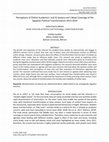
Jurnal Komunikasi: Malaysian Journal of Communication, 2020
The growth and expansion of the Internet has enabled many people to communicate and engage in dif... more The growth and expansion of the Internet has enabled many people to communicate and engage in different manners and it is easier than ever now to obtain news and information content via different online sittings. However, concerns grow about the effects of misinformation that has been circulated via different online media sites to influence public views. This research was aimed at exploring online academic news users' behaviour and their attitudes towards news information given by Al-Jazeera.net during the Egyptian transformation (2013-2014) in Egypt. Based on an online survey (450 users) and focus-group interviews (six respondents) with Egyptian academics, the research discussed whether users were aware of the media interest or agenda and how users became informed about the political conflict and the transformation, their perceptions of news sites and their evaluation of information regarding this period. The research confirmed that every media has its own interest or agenda when delivering news content, which might favour one side over another. Users indicated that misinformation was found in different forms and, although others underlined the importance of freely accessing online content, there was concern about the spread of misinformation the morality and credibility of online news.

sage, 2020
This article examines perceptions of social media use (e.g. the WhatsApp application), in particu... more This article examines perceptions of social media use (e.g. the WhatsApp application), in particular looking at how Bahraini women use such technology and how mobile communication is used by such a segment of the population. Mobile devices are very accessible to Bahraini women and this needs even further study to learn ways of using applications for information and other things. This analysis is based on an online survey, conducted among 1137 Bahraini women, using a non-representative sample (snowball). Such data were analyzed using a deep learning approach which utilizes, in particular, the Fuzzy Proximity Knowledge Mining technique to examine the provided answers. The study found that WhatsApp has enabled Bahraini women to communicate and share information with others. They spent 2-3 h daily sending and enjoying comics and entertainment clips and important and rare news stories. Social interaction, communication, and escapism featured strongly as the most popular reasons for using WhatsApp. Overall, WhatsApp served as a platform used to participate in social and communication activities.

media watch , 2018
This study aims to Arab opinion leaders' attitudes and perceptions towards the
coverage of Da'esh... more This study aims to Arab opinion leaders' attitudes and perceptions towards the
coverage of Da'esh actions by Arab and non-Arab TV news services, thus, by
investigating the perception of Da'esh actions provided by Arab and non-Arab TV
services. Data were collected from 1,330 participants across 19 Arab countries,
with a probability sample due to the difficulties to gather comprehensive
information from the sample that targets Arab opinion leaders. The findings of
the study show that Arab and Western news channels present 2.7 per cent of their
news bulletins about Da'esh. The variable "very big" in the first place by 60.1 per
cent, and the "big" variable occupied second place by 15.5 per cent, while the
interest rate for the weak variable came in last place with 10 per cent. The majority
of respondents trust the news of Arab and Western news channels about Da'esh.
In the "yes" answer, 87.9 per cent pointed to Arab channels, and 84.4 per cent for
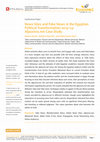
Sustainability and Resilience Conference: Mitigating Risks and Emergency Planning, KnE Social Sciences, 2018
Online activities allow users to benefit from, and engage with, news and information in a more co... more Online activities allow users to benefit from, and engage with, news and information in a more complex way than was possible with old news settings. However, many have expressed concerns about the effects of false news stories, or ‘fake news’, circulated largely via online services on public view. This study examines the news sites’ behaviour and the attitudes of elite Egyptian academics towards information provided by the aljazeera.net news site during the Egyptian political conflict and the transformation from former President Mohamed Morsi to current President Abdul Fatah el-Sisi. A total of 450 elite academics were surveyed online to evaluate news and information about the political conflict and the transformation in Egypt through focusing on how they became informed about such news, their perceptions of news via the aljazeera.net site and their evaluation of whether the network has misused information regarding this period. The results indicated that the aljazeera.net site used different, false and ‘fake news’ techniques mainly in support of the pro-Morsi position during the transition to el-Sisi. Respondents indicated that misinformation was clearly provided by aljazeera.net in different formats, though some highlighted the importance of accessing news from online sources. Respondents indicated that online content can be easily spread among users with no significant third-party filtering, fact-checking or editorial judgment. This raises questions about who becomes the arbiter of truth

university Rey Juan Carlos Madrid, Spain, 2018
Use of the internet, especially the new media, has become a mainstream everyday habit for communi... more Use of the internet, especially the new media, has become a mainstream everyday habit for communications and transactions, although there is concern about online surveillance by governments checking users' activities. In the Arab world, this means that there are more than 135 million online users, with 71 million using socialmedia platforms as a means of communication and interaction. The increase in online usage has led to a marked decrease in the number of consumers who use old media and, as a result, consumers increasingly use smart devices, mobiles, tablets and other technology. Furthermore, the development of digital technologies and the rise of different consumption patterns, values and trends-linked to the exchange of information, communication and networking through newmedia platforms developed in the GCC region through different users' preferences and lifestyles-has already been acknowledged. The purpose of this study is to identify the trends, dimensions and factors that have emerged in the GCC's political communication landscape over the last two decades so as to understand the impact of new media. Research into such matters is growing and there is a need for more evaluation of the way that new media are used in this region. This study also aims to examine the nature of the various political, intellectual and social factors and the impact of new media in how they contribute to creating the public sphere, particularly within GCC society. In doing so, this paper highlights how the newmedia landscape has been changed, how these new media have been used by GCC governments to influence the nature of public discourse and how new media can be exploited to underpin freedom of expression and government policies. The methodological approach here is based on secondary research about the development of digital technologies in the Arab world, especially in the GCC region. Our paper supports the assumption that social media may provide an avenue for more freedom of expression and create fresh debates in a new political sphere. In the Arab world, this means that the way in which societies and governments interact has effectively changed. In other words, the flow of information via new media has already influenced policymaking, public engagement and other means of citizengovernment interaction in the Arab world and the GCC region. This also means that new media and citizens' media can form and empower the structure of the public sphere in the GCC by assisting in building an accumulated awareness that allows for political reform, restructuring the social contract and forming public opinion in accordance with the democratic process and the modern civil state.

Journal of Arab & Muslim Media Research 11(1):, 2018
The use of Facebook (FB) is becoming ubiquitous among Arab online users, including Arab youths in... more The use of Facebook (FB) is becoming ubiquitous among Arab online users, including Arab youths in higher education. This article investigates the perceptions of an FB group called Open Media Library (OML) regarding FB use in academia and education. It examines the extent to which motivation and trust drives members to use FB in academia and education. The study analyses their attitudes, their preferred topics and the gratification they receive from using FB, as well as whether they trust the information on FB. A total of 374 FB users, aged 18 and over, from nine Arab countries were surveyed. As stated in the literature, this article confirms that FB is mainly used for communication, collaboration, resource-sharing, intercultural communication and relationships. Communication and experience, the identification of news and events, maintaining friendships, entertainment, curiosity and escape were the motivating factors cited by most respondents for using FB in academia and education. Despite the popularity of FB, respondents still do not trust information on FB. The predictors of FB use include: education; exchange of views with others; and communication with family and friends.

Journal of Media Watch, 2017
An online survey is reported that was carried out with more than 385 social media users aged 18 a... more An online survey is reported that was carried out with more than 385 social media users aged 18 and over and extracted from nine Arab countries; Bahrain, Egypt, Algeria, Libya, Iraq, Kuwait, Syria, Jordan and Yemen. This research focuses on the use of Facebook by a selected group called Open Media Library (OML) which have interests in social media use. The aim of this research is to understand how and why users utilise Facebook and what their attitudes and perceptions are towards the purposes of Facebook. It examines how OML users utilise information and knowledge posted on Facebook, their preferred topics and motivations and the gratifications they obtained. As stated in the literature, this research confirms that Facebook can be used/defined as communication, collaboration and resource-sharing, as well as for intercultural communication and intercultural relationships. Curiosity and escapism, communication and experience, friendship and entertainment and identification of news and events are the main motivations for using Facebook. The findings are discussed in terms of their implications for the future of social media and its impacts on intercultural communication, media use and intercultural relationships.
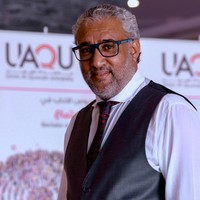



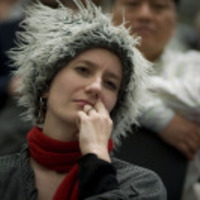






Uploads
Papers by Dr.Abdul-Karim Ziani
coverage of Da'esh actions by Arab and non-Arab TV news services, thus, by
investigating the perception of Da'esh actions provided by Arab and non-Arab TV
services. Data were collected from 1,330 participants across 19 Arab countries,
with a probability sample due to the difficulties to gather comprehensive
information from the sample that targets Arab opinion leaders. The findings of
the study show that Arab and Western news channels present 2.7 per cent of their
news bulletins about Da'esh. The variable "very big" in the first place by 60.1 per
cent, and the "big" variable occupied second place by 15.5 per cent, while the
interest rate for the weak variable came in last place with 10 per cent. The majority
of respondents trust the news of Arab and Western news channels about Da'esh.
In the "yes" answer, 87.9 per cent pointed to Arab channels, and 84.4 per cent for
coverage of Da'esh actions by Arab and non-Arab TV news services, thus, by
investigating the perception of Da'esh actions provided by Arab and non-Arab TV
services. Data were collected from 1,330 participants across 19 Arab countries,
with a probability sample due to the difficulties to gather comprehensive
information from the sample that targets Arab opinion leaders. The findings of
the study show that Arab and Western news channels present 2.7 per cent of their
news bulletins about Da'esh. The variable "very big" in the first place by 60.1 per
cent, and the "big" variable occupied second place by 15.5 per cent, while the
interest rate for the weak variable came in last place with 10 per cent. The majority
of respondents trust the news of Arab and Western news channels about Da'esh.
In the "yes" answer, 87.9 per cent pointed to Arab channels, and 84.4 per cent for
these new TV services will survive in providing information about citizens’ interests, including the new, developing political scene. A total of 134 highly educated Libyan professionals completed an online survey, reporting their perceptions of issues covered by national TV services. This account centres on how those elites consume the media and what level of trust they have in the media and in information and what the role of the media in their country should be. The results show that most respondents, especially those who live outside the country, prefer using different Libyan news platforms. However, 50 per cent of these do not trust these channels as a source of information regarding the civil war, associated conflicts and politics in general. They have grown weary of coverage that represents the interests of those who run or own the services and consequently place little trust in the media. Spreading ‘lies as facts’ has affected the credibility of these services. Politically, these respondents wish the media to discuss solutions and act as a force for good, not for division. They also differed in the number and variety of national news sources that they reportedly used. This paper also highlights the role of social media, mobile telephony and the Internet, as well as the rapidly proliferating private and national media. These findings are also discussed in relation to the growing impact of online sources in Libyan society, social and political change and the emergence of new media platforms as new sources of information.
- Al-Jaber, K., Elareshi, M., & Ziani, A. (2019). The Gulf in Western Hearts and Minds: The dilemma of stereotypical frames and perceptions. In D. Khatib & M. Maziad. The Arab Gulf States and the West: Perceptions and Realities - Opportunities and Perils (pp. 223-242). Routledge: UK.
Abstract:
Arabs’ and Muslims’ relationships with the West are always up and down, depending on how they are perceived by Western hearts and minds. This paper examines perceptions of the Arab GCC region and Muslim image(s), stereotypes, and framing across the mainstream Western media. The study aims to build upon previous studies by analysing the various content of articles in some of the most well-known Western newspapers (The New York Times (USA), The Independent (UK) and Le Figaro (France)) relating to the Arab Gulf States. The aim of this study is also to fill the gap in the literature and research on the series of efforts that the Arab Gulf States have made to win the hearts and minds of Western societies by providing a current assessment of how the main Western newspapers portray Arabs. A total sample of 2,508 newspaper articles was selected, based on a purposive sample from January 1st to December 31st 2016. Articles and news stories were specifically filtered based on issues related to the Qatar World Cup 2020; to the Syrian war; and to Operation Decisive Storm in Yemen. Results revealed that these newspapers have created hostile image(s) and stereotypes of the Arab Gulf States using negative news trends, referring to corruption (Le Figaro and The Independent) and human rights issues (NYT) and providing one side of the argument (NYT) and counterfeiting the facts, by applying negative media frames.